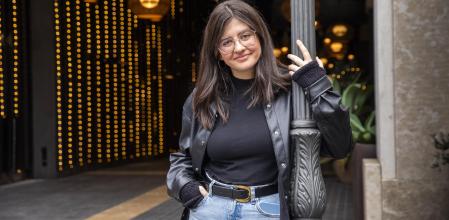
Author Julie Gilbert Discusses the Writing of Her New Book ‘Giant Love’
Julie Gilbert Today, we delve into the enduring relevance of the themes explored by Pulitzer Prize -winning author Edna Ferber
A newly published report from the University of Pittsburgh that claims “AI-generated poetry is indistinguishable from human-written poetry and is rated more favorably,” has sent a swarm of headlines buzzing around the maligned and beloved art form. The Washington Post definitively declared, “ChatGPT is a poet” atop its article about the report. Others more closely echoed the age-old claims that poetry is dead, or as one publication offered, “Suck it, Shakespeare.” But reports like these are important to investigate as they have practical and potentially serious consequences. They can reinforce what some argue is the art form’s irrelevance, which in turn helps fuel arguments that discredit the importance of teaching poetry and supporting today’s thousands of passionate and prolific poets, as well as the hundreds of nonprofit poetry organizations and publishers dedicated to their work. Poets use well-worn human material—agreed upon symbols for sounds and ideas, a.k.a language—to make something new. How different is that from generative large language models (LLMs) algorithmically generating new texts from the millions of pages of writing (or inputs) with which computer programmers have built them? Very. It’s worth remembering that LLMs’ origin story involves consuming vast quantities of authors’ work without seeking consent or offering remuneration. As web developer Alex Reisner explained in an Atlantic article , “A culture of piracy has existed since the early days of the internet, and in a sense, AI developers are doing something that’s come to seem natural. It is uncomfortably apt that today’s flagship technology is powered by mass theft.” In this case, the authors of the new report, scientists Brian Porter and Edouard Machery, entered their experiments with the premise that a poem is something to be solved and poetry, a competition to win. And, from their perspective, they earned a blue ribbon. “AI generated poems are now more human than human,” they confidently pronounced. In racing to confer god-like status to machine output, what’s lost is what makes a poem a poem: a necessary urge to plumb what it means to have “one wild and precious life,” as Mary Oliver wrote. Poems are meditations […]
Click here to view original page at On the Report of Poetry’s Death, or: What Does That AI Poetry Study Really Tell Us?
© 2024, wcadmin. All rights reserved, Writers Critique, LLC Unless otherwise noted, all posts remain copyright of their respective authors.

Julie Gilbert Today, we delve into the enduring relevance of the themes explored by Pulitzer Prize -winning author Edna Ferber

The Mallorcan Joana Marcús is a young bestseller in Spain and America, writer of young adult novels with a romantic


